Amidst the constant influx of diet trends, one particular regimen has gained traction: the MIND diet. Combining elements of the Mediterranean and DASH diets, this innovative approach focuses on brain health. If you’re intrigued by novel ways to enhance your well-being, delve into how to embark on the MIND diet journey and unlock its cognitive benefits.
What Is the Mind Diet?
The Mediterranean-DASH Intervention for Neurodegenerative Delay, abbreviated as MIND, is a dietary approach that merges the Mediterranean and DASH (Dietary Approaches to Stop Hypertension) diets. This fusion aims to fortify and safeguard the brain against age-related cognitive diseases like dementia and Alzheimer’s. Backed by numerous scientific studies, experts assert that these two diets are among the healthiest, with additional benefits including reduced risk of diabetes, oxidative stress, and high blood pressure. By integrating key elements of both, the MIND diet emerges as a powerful tool for optimizing brain health and overall well-being.
What Are the Benefits of the Mind Diet?
Following a cognition-centric diet offers several benefits that contribute to overall well-being:
- Enhanced cognitive function: Research indicates that older adults adhering to this lifestyle experience improvements in episodic memory, working memory, and semantic memory, along with enhanced cognitive processing speed.
- Reduced risk of Alzheimer’s and dementia: Clinical trials have demonstrated that individuals adhering to the MIND diet for 4.5 years experienced a remarkable 53% decrease in the risk of developing cognitive diseases.
- Decreased inflammation: By incorporating principles from both the Mediterranean and DASH diets, this approach naturally lowers inflammation and oxidative stress levels, thanks to its emphasis on nutrient-dense foods.
- Heart protection: Prioritizing antioxidant-rich and fiber-packed foods while minimizing intake of meat and saturated fats not only benefits brain health but also supports cardiovascular health, providing a holistic approach to well-being.
- Diabetes management: Embracing a low-sugar diet has been associated with a 20% reduction in the risk of Type 2 diabetes and improved blood sugar control, as evidenced by a meta-analysis review.
What Are the Principels of the Mind Diet
In summary, the key principles entail:
- Incorporating a minimum of three servings of vegetables, whole grains, and fruits daily, alongside one to two servings of beans, poultry, and fish weekly.
- Incorporating berries and nuts as daily snacks.
- Moderating intake of red meat, eggs, and dairy. These guidelines are tailored to enhance brain health and cognitive resilience by promoting nutrient-rich foods while limiting saturated fat, sodium, and sugar consumption.
5 Foods to Avoid on the Mind Diet
1. Red meat
To keep your thinking and memory sharp, this diet recommends limiting your red meat consumption to no more than three servings weekly. This rule also applies to pork, lamb, and beef, which contain high amounts of saturated fat. Therefore, get creative and kickstart your day with one of these high-protein vegan breakfasts, or give one of these vegan Italian recipes a try.
2. Pastries and sweets
You may struggle following the MIND diet if you have a sweet tooth. It limits processed sweets and baked goods like ice cream, cookies, donuts, etc., to no more than four times a week. Too much sugar over time can damage brain blood vessels, causing problems with memory and concentration and potentially vascular dementia.
3. Butter and margarine
Always use olive oil as your primary cooking oil, and try to eat less than one tablespoon of butter daily. Why? Butter is loaded with saturated fats, and too much causes cognitive decline and significantly increases your risk for Alzheimer’s and dementia.
4. Cheese
While cheese might be your go-to comfort food, try to limit your consumption to less than one serving per week. Diacetyl, the key ingredient in processed cheese responsible for its creaminess, can harm your brain and lead to memory decline. So, explore a few high-protein vegan meals to curb your cheese cravings and satiate your hunger.
5. Fried food
Avoiding fried foods is a universal rule, regardless of your diet. But on the MIND diet, you’re allowed less than one serving weekly. Indeed, these guilty pleasures are packed with harmful saturated fats and excessive sodium. And like sugar, they can also cause inflammation and damage your brain’s blood vessels.
10 Foods to Eat on the Mind Diet
1. Whole grains
Eat four or more servings a week of whole grains such as quinoa, buckwheat, rye, oats, bulgur, or brown and wild rice to enjoy the advantages of brain-boosting nutrients like vitamin B, magnesium, fiber, zinc, antioxidants, and folate. A folate deficiency can actually cause neurological disorders like depression, anxiety, and cognitive impairment. Therefore, opt for something like baked oatmeal cups or high-protein overnight oats to kickstart your day.

2. Leafy greens
The MIND diet asks you to load up on leafy greens with at least six or more servings per week. To limit the potential repetition, try some of these salad upgrades or experiment with different smoothie recipes. Prioritizing your daily greens will provide essential nutrients like folate, lutein, and beta-carotene to protect cognition as you age.
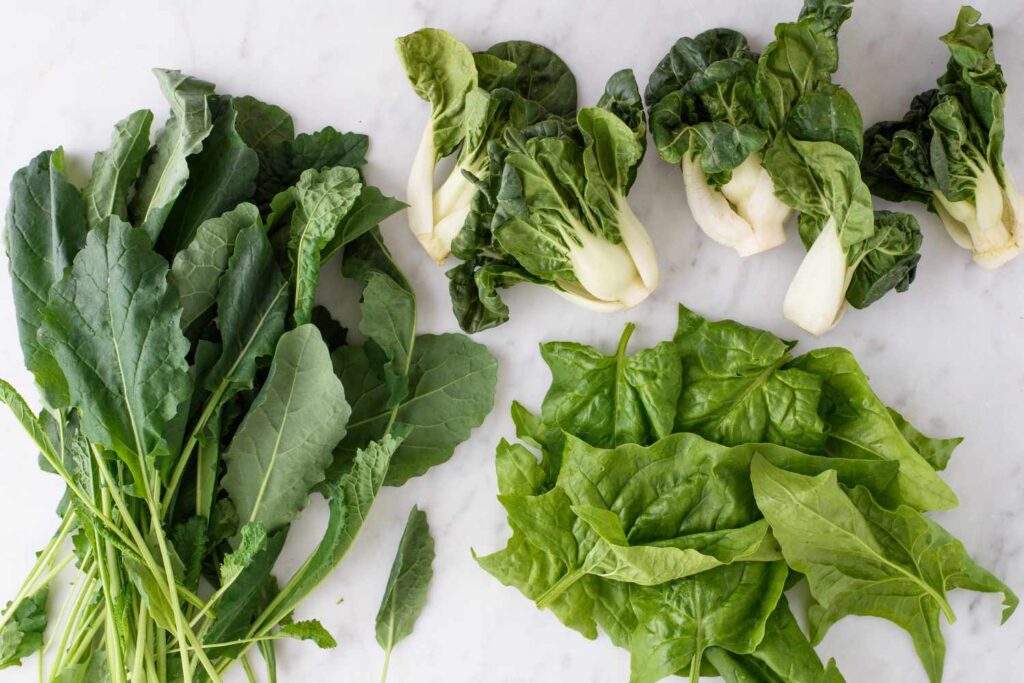
3. Vegetables
You are welcome to eat the rainbow with your brain-enriched vegetable selection. For example, opt for at least one daily serving and eat asparagus, broccoli, peppers, eggplant, okra, carrots, beets, and squash…the list is endless. Or make one of our favorite cucumber juice recipes.
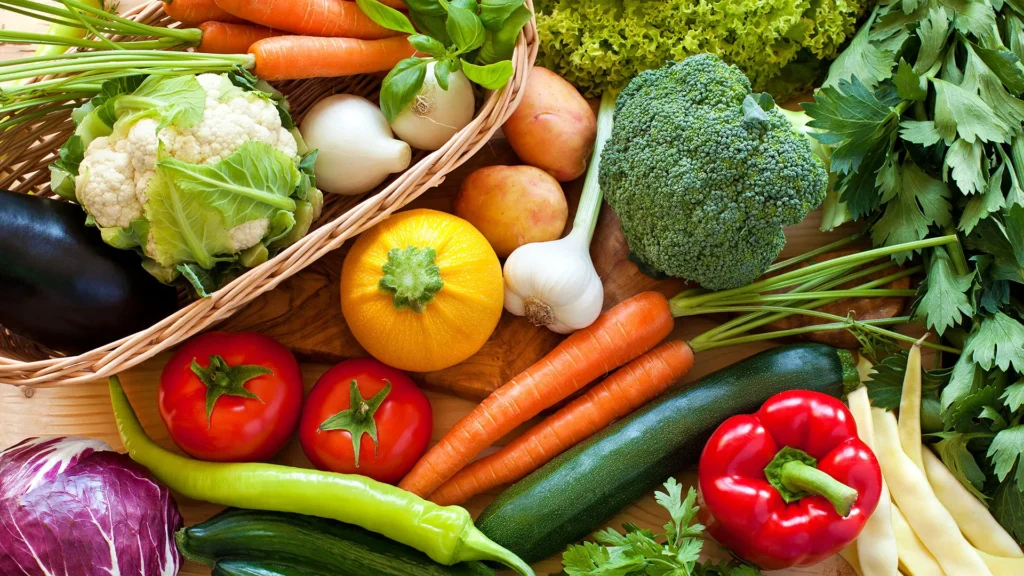
4. Nuts and seeds
Nuts are always a popular go-to that carries multiple benefits. But for the brain specifically, they contain a plethora of b vitamins, healthy fats, and minerals that make you on top of your game. Enjoy at least five servings a week of walnuts, almonds, Brazil nuts, cashews, pistachios, pine nuts, or macadamias.
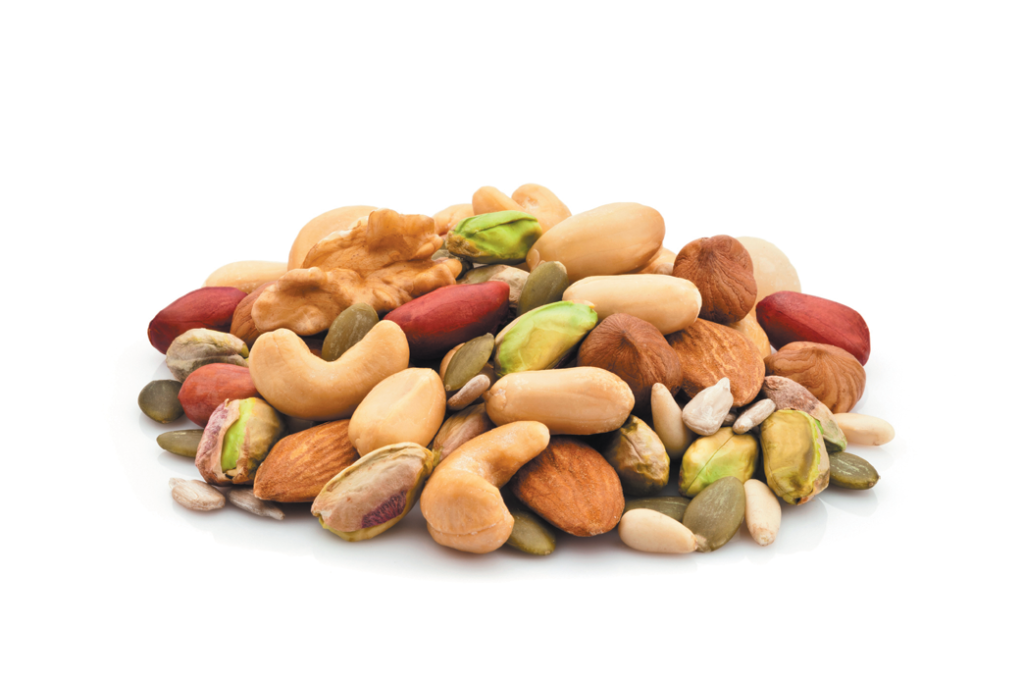
5. Berries
You probably already know the antioxidant-rich and brain-boosting benefits of berries. But did you know a study found adults who ate a daily serving of blueberries showed improvements in memory and attention with select tasks? It’s true, so enjoy two weekly servings of strawberries, blueberries, blackberries, or raspberries.
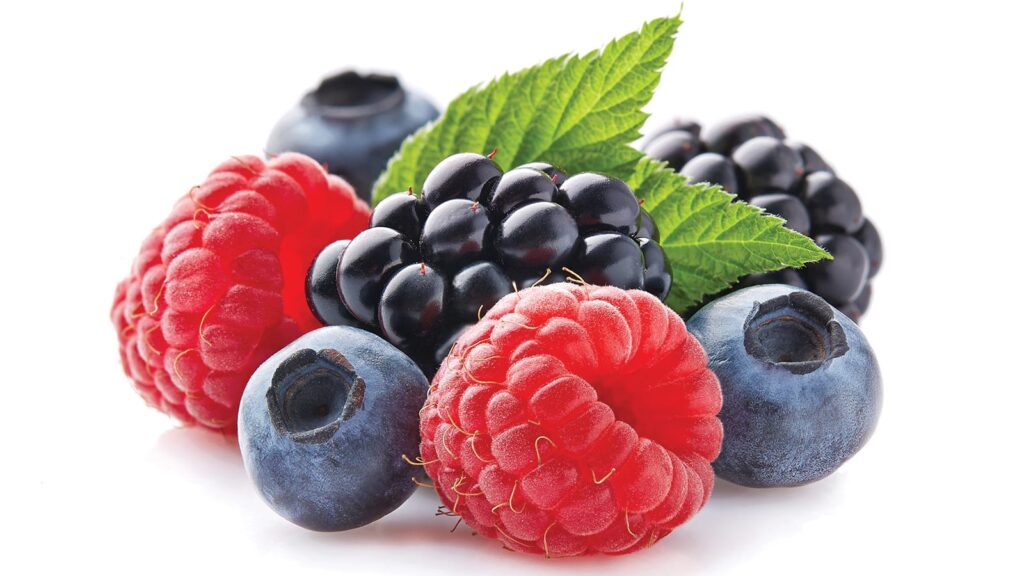
6. Beans
Whether you choose pinto beans, black beans, red beans, or chickpeas, beans are the ultimate superfood. They’re an exceptional source of protein and provide essential B vitamins, both of which are critical to your brain health. Yet limit their deliciousness to three servings a week.
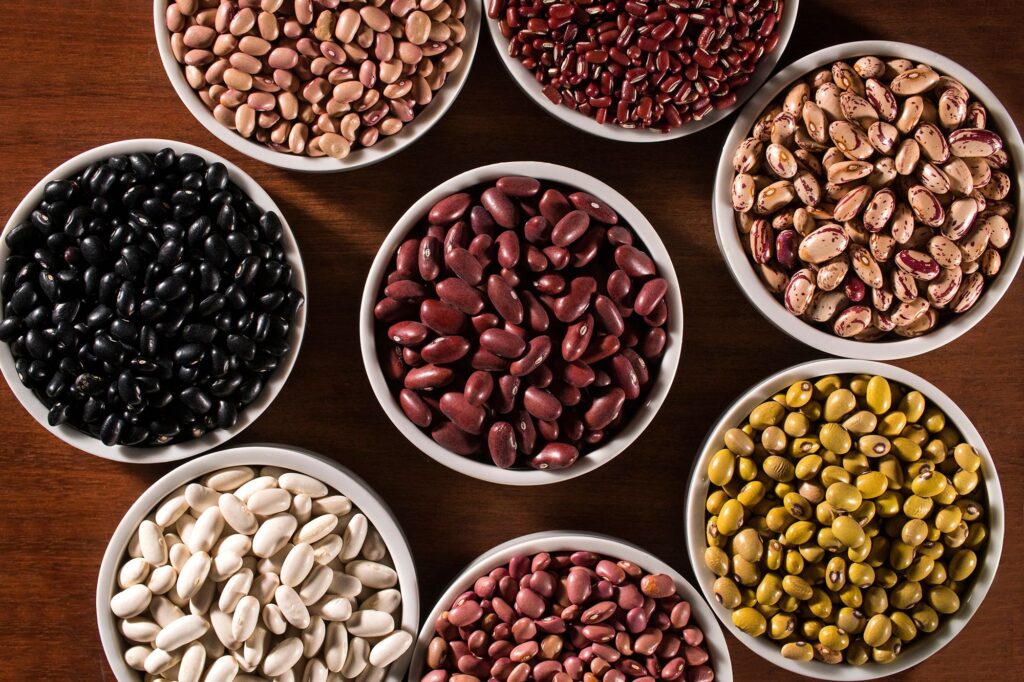
7. Fish
It’s widely acknowledged fatty fish such as tuna, salmon, mackerel, and trout contain high sources of omega-3 fatty acids, the healthy fats that promote brain and heart health. However, limit your weekly intake to one serving, and if you’re not a fan of seafood, there are other omega-3-enriched foods to add to your diet.
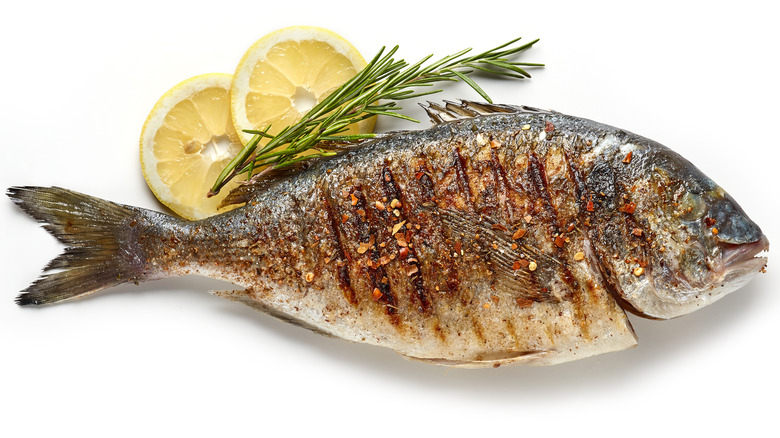
8. Poultry
Lean meats like chicken or turkey contain vitamin B12, an essential vitamin that aids cognitive performance and helps the nervous system function properly. While meal prepping, incorporate a few delicious rotisserie chicken leftover recipes into your diet, and limit your consumption to two servings per week.

9. Olive oil
Known as the staple of an Italian diet, this antioxidant-packed and versatile product promotes new brain cells, protects the brain from damage, and improves overall brain function. So, substitute butter and make olive oil your primary cooking oil.
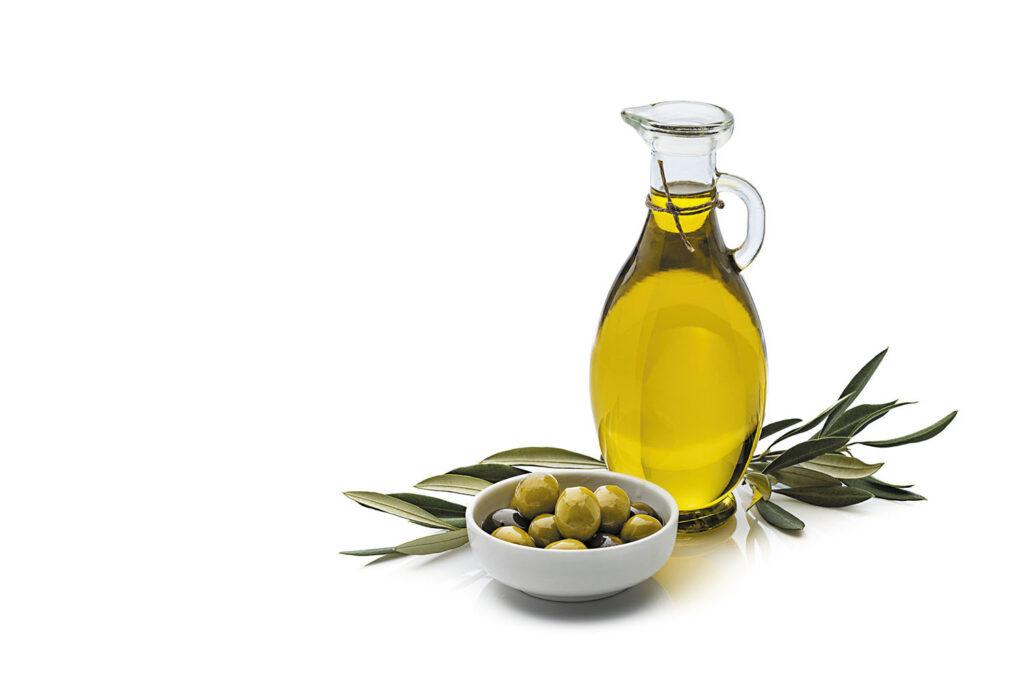
10. Wine
The presence of antioxidants, specifically resveratrol, in both red and white wine is why you’re allowed one glass daily. While the research about the benefits of resveratrol is inclusive, feel free to enjoy your treat after a taxing day to de-stress.

And there you have it! Your comprehensive guide to the MIND diet, highlighting its brain-boosting advantages and the importance of integrating its principles into your daily routine.


